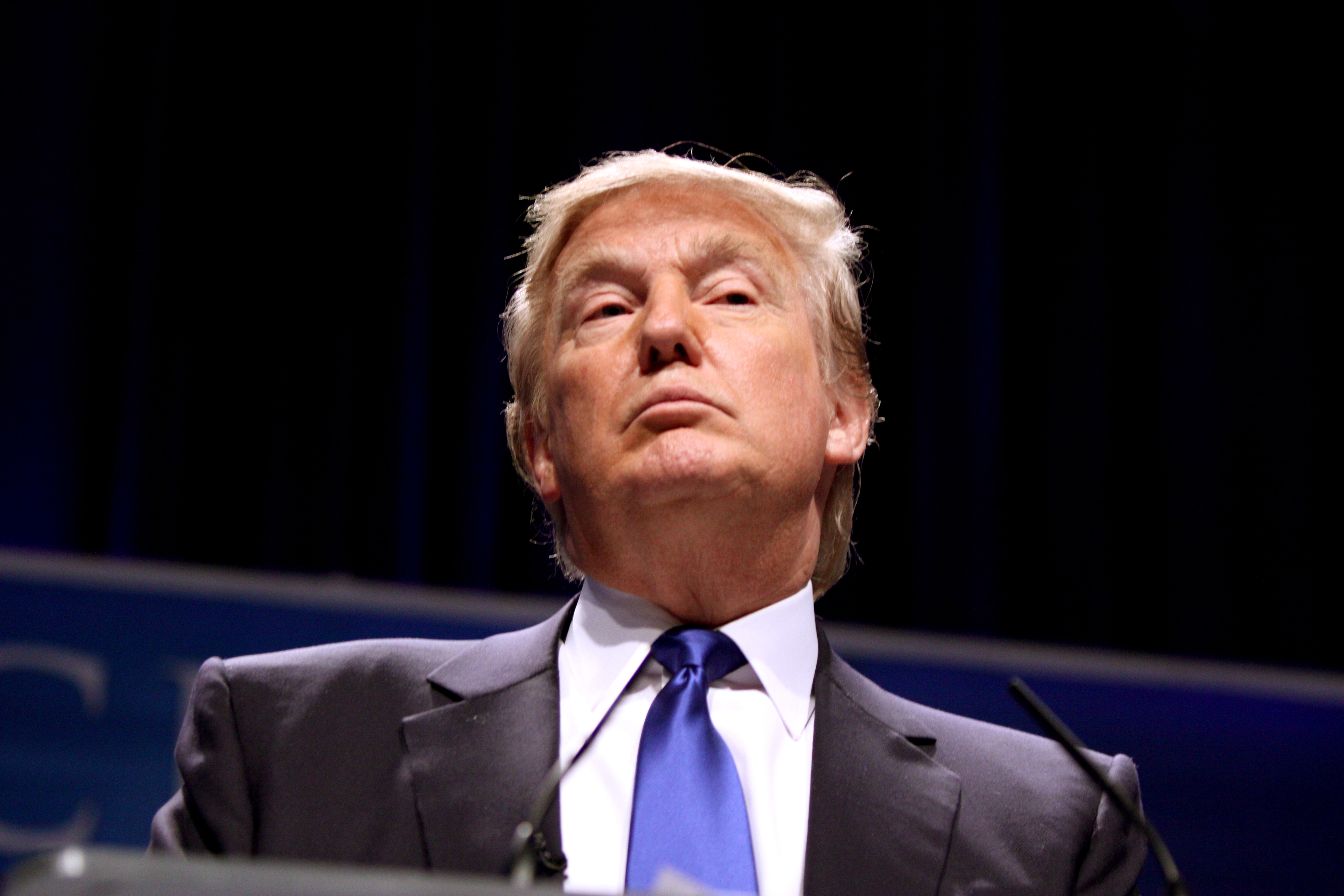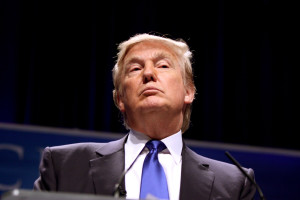Why Trump’s Presidency Means a Struggle for Women’s Rights Both at Home and Abroad
 Donald Trump in Washington, D.C. in 2011. Photo by Gage Skidmore https://flic.kr/p/9hKraP
Donald Trump in Washington, D.C. in 2011. Photo by Gage Skidmore https://flic.kr/p/9hKraP
Donald Trump’s new position as president could lead to a change in tone towards women’s rights in both the US and on the world stage.
On the weekend of January 21st, millions engaged in civil defiance against the newly inaugurated Donald Trump. The 2017 Women’s March on Washington D.C. amassed a reported gathering of 440,000 – 500,000 women and men of a variety of different backgrounds and identities—three times the number of people who showed up for the inauguration. This number was only a fraction of those who came out and marched that weekend, as similar protests around the country and the globe took place to show Trump what everyone truly thought of him and demonstrate the civil resistance with which his bigoted policies and executive orders would be met. From London to our very own Montreal, and even in Antarctica, citizens emerged to show that a Trump presidency not only poses a threat to the liberties of those living on US soil, but to people everywhere.

This threat is not necessarily an aggressive one. As the President, Donald Trump is the figurehead and voice of the one of the longest running constitutional democracies and hegemonic powers in the world today. This kind of influence helped push through the Paris Climate Accord and provide a blockade against looming Russian aggression. Trump has grossly misused this influence. His comments and policies on climate change, women’s rights, refugees, and open support for Russia’s authoritarian pseudo-dictator have set a tone on the international stage that gives license and legitimacy to worldwide bigotry and degradation of international standards.
Only 6 days after the Women’s March, Russia’s lower-house of parliament, known as the State Duma, elected, in a landslide vote of 380-3, to decriminalize domestic violence. The new law will exonerate first time domestic abusers of criminal charges if such abuse doesn’t result in bodily injury that threatens the victim’s health. Domestic violence is a huge issue in Russia, with 40% of all violent crimes occurring within the family. A 2013 BBC report published Russian interior ministry estimates that reported an average of 40 women per day died from injuries “inflicted by husbands or partners” in Russia. As is the case with domestic violence worldwide, only a fraction of incidents are reported, meaning these statistics only tell part of the story, not to mention psychological domestic abuse to which women are globally subjected. Russia’s new law will likely result in an even longer leash for abusers and a degradation of women’s rights in Russia, both of which will lead to the neglect of a large percentage of Russia’s population facing the daily threat of domestic violence.
While it would be remiss to declare this event a direct result of Trump’s influence, it would be just as naive to label the vote as completely separate from Trump’s sexual assault history and executive orders on women’s reproductive rights. Up until this new passing of legislation, steps had been made in July of 2016 to criminalize violence against one’s relatives. Even the language surrounding the bill carries Trump’s figurative stench. The figurehead of the bill, conservative Russian Senator Yelena Mizulina, stated that “a man beating his wife is less offensive than when a woman humiliates a man”. The idea of “nasty women”’s words being extremely detrimental to the over-inflated ego of a man has, not coincidentally, also been the topic of much discussion surrounding this most recent American election cycle.
Whether or not this chipping away at women’s rights is a result of Trump, it is almost certain that the White House will devote insufficient attention to such an attack on the safety of Russian women in their own homes. Not only has Trump clearly shown a lack of empathy to the plight of women on his own soil, but he has also demonstrated that he has little interest in challenging Russia on its domestic policies and is more focused on buddying up to the country’s premier, a serial human rights violator.
This sets a precedent for the future. If Trump doesn’t condemn Russia on this issue— which he won’t—then where does the limit lie? How many international human rights violations must there be before enough is enough? The same question goes for Russia. At what point does he challenge its domestic policy, which threatens the liberties of its citizens? Obama made a point to challenge Russia on these types of legislation, particularly its bills concerning gay rights, even going as far as to meet with Russian gay rights activists whom Putin was attempting to silence. This not only kept Russia from freely impinging on their citizens rights without any repercussions or condemnation, but also sent a message to the international community that the US was an ally to marginalized people across the globe.
Having freedom of speech in America is a beautiful right that all citizens are privileged to have, and it allows for the kinds of mass demonstrations we saw the weekend of the inauguration, an event which will go down in the annals of feminist history. It is the right that permits the people to protest and vocally reject demagogues like Trump and express our opinions without fear of prosecution. This right is unfortunately not granted in all countries. Across the world there are states and parties silencing their opposition with the threat, or reality of, imprisonment or death. People cannot speak out without fear for their lives or their loved ones’ lives. For that reason, America, and countries that truly believe in liberty and democracy, must condemn states such as Russia that challenge the rights of its own citizens.
As a powerful state, the US can speak out for the silenced. This power has historically been used in the interest of violence and international suppression but has shown the ability to cause truly dramatic social change on the international stage in recent years under Obama. Trump’s decision to remain mute not only denies offering this voice, but also implicitly—and explicitly—supports states that promote undemocratic and unjust practices. It remains uncertain as to how Trump will approach countries such as Russia, but it seems increasingly unlikely that he will challenge friends of his, no matter how autocratic.
